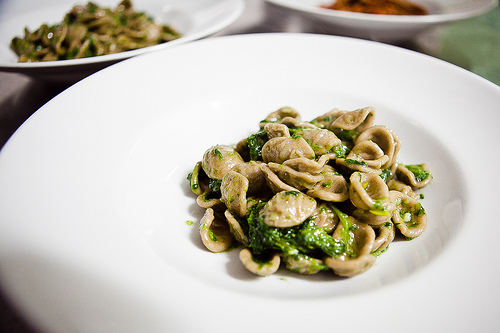
Crash Dieting Never Works - In Fact, It's Counterproductive
Crash diets tend to appeal to us when we suddenly decide we've had enough. Their extreme nature appeals to us when we think we're being decisive, and to be honest there's an element of self-punishment there too sometimes. But the two biggest problems with crash diets is that they're really unhealthy, and they don't work. Suddenly cutting out certain types of foods or cutting your caloric intake drastically makes your body more desperate than ever to cling to its adipose tissue - fat, to you and me - in case there's never any food again! Worse, that's a policy decision that doesn't change automatically when you start eating again. Instead, you'll crave carb-heavy, fat-rich foods that are idea for laying down as body fat for the next episode of starvation. The heavier the crash - the more sharply you cut your caloric intake - and the more frequently you do this, the more you're teaching your body to prepare for a famine by clinging to its fat reserves and laying down new ones every chance it gets.
- Important notification about information and brand names used in this slideshow!
- Photo courtesy of Caspar Diederik by Flickr : www.flickr.com/photos/storytravelers/7155966537/
- www.webmd.com/diet/ss/slideshow-diet-mistakes
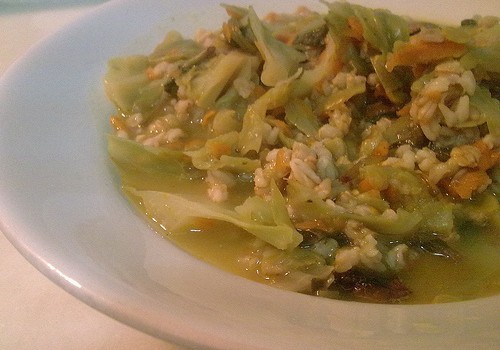
Cabbage Soup Diet - A Fad That Means Starvation And Rebound Weight Gain
The cabbage soup diet is a diet for weight loss, but it's a fairly radical one. The cabbage soup diet is supposed to allow you to lose 10lb of weight in a week, and while it's possible to lose that much weight in a week, it isn't possible to lose that much fat. Instead, nutritionists claim, the diet causes dangerous dehydration as well as being very low in calories - to the point that it's probably dangerous for some people even over seven days. The typical recipe given for the soup is very high in sodium, and the diet includes almost no protein for several days. Basically, it's the 'sudden starvation' diet, and not a very well thought out one at that.
- Important notification about information and brand names used in this slideshow!
- Photo courtesy of Lablascovegmenu by Flickr : www.flickr.com/photos/lablasco/4661073696/
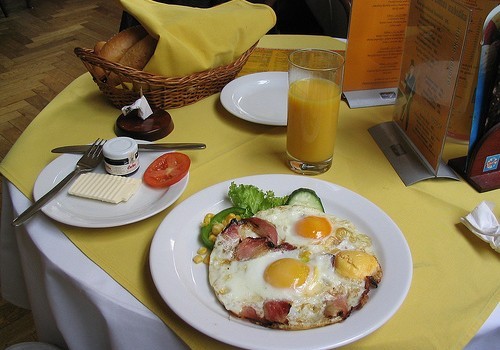
Skipping Breakfast Is A Surefire Way To Short-Circuit Your Weight Loss Plans
Skipping breakfast is one of the worst nutrition mistakes you can make. Breakfast is called that for a reason, because it's when you 'break your fast' of the night before. By the time breakfast - say, 7AM - rolls around, most people haven't eaten anything substantial for twelve hours or more. By lunchtime of the next day it's more like 17 hours. That's far, far too long in almost all circumstances. The ideal breakfast should be like a microcosm of the ideal diet: rich in protein, fat and long-chain carbohydrates, fibre and vitamins, it should make up for the long period of fasting that precedes it and prepare you for the day ahead. Kids who don't eat breakfast do worse at school, adults who don't eat breakfast do worse at work. And they have a harder time losing weight, for two reasons. First, their bodies experience long periods of fasting as famine, and begin to preferentially partition calories that are eaten into body fat, while hanging on to the fat reserves that are already there at the expense of glycogen, blood sugar and muscle tissue. Second, when you don't eat anything for breakfast, anything is just what you do eat...
Skipping breakfast is one of the worst nutrition mistakes you can make. Breakfast is called that for a reason, because it's when you 'break your fast' of the night before. By the time breakfast - say, 7AM - rolls around, most people haven't eaten anything substantial for twelve hours or more. By lunchtime of the next day it's more like 17 hours. That's far, far too long in almost all circumstances. The ideal breakfast should be like a microcosm of the ideal diet: rich in protein, fat and long-chain carbohydrates, fibre and vitamins, it should make up for the long period of fasting that precedes it and prepare you for the day ahead. Kids who don't eat breakfast do worse at school, adults who don't eat breakfast do worse at work. And they have a harder time losing weight, for two reasons. First, their bodies experience long periods of fasting as famine, and begin to preferentially partition calories that are eaten into body fat, while hanging on to the fat reserves that are already there at the expense of glycogen, blood sugar and muscle tissue. Second, when you don't eat anything for breakfast, anything is just what you do eat throughout the morning. You find yourself drawn to high-sugar, low-nutrient foods and you might end up eating more calories than if you'd had a big fry-up before leaving the house.
- Important notification about information and brand names used in this slideshow!
- Photo courtesy of Nick Kocharhook by Flickr : www.flickr.com/photos/k9/46829792/
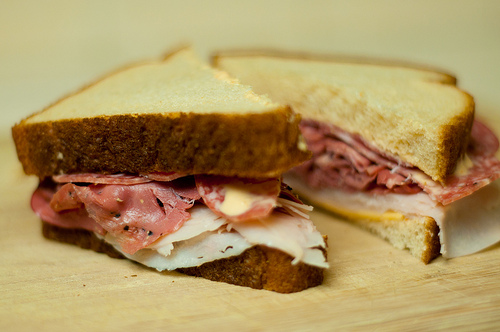
Snacking Constantly Means Eating More, Not Less
Snacking is a thorny issue. It's not bad in and of itself, but it needs to be handled right. Basically the two types of snacking are good snacking, when you plan to snack, and bad snacking, when you don't. If you have a good eating plan and snacking is part of it, which it can be, go ahead. If not, though, cut out 'unauthorised' snacks, and watch out for filling the defecit of smaller meals with junk snacks. The danger here is that you can end up eating less at mealtimes and snacking more - and actually eating more calories (and in worse forms)!
- Important notification about information and brand names used in this slideshow!
- Photo courtesy of John Liu by Flickr : www.flickr.com/photos/8047705@N02/5728936767/
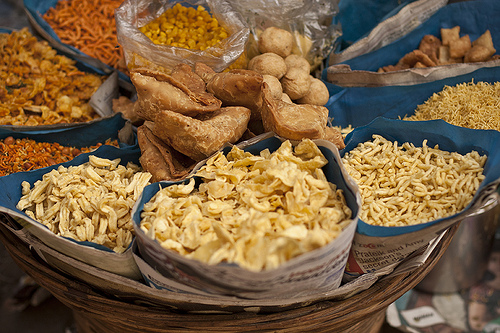
Not Snacking At All Can Mean Missing Out On A Diet Trick
Not snacking at all can be a diet killer too. If you're eating fewer calories, spreading them out throughout the day can help massively with keeping your blood sugar more level, especially in the early days of a weight loss plan when your old ideas of normal portions can keep making themselves felt. Add a couple of optional snacks into your eating plan, 'budget' the calories for some between-meals pick-me-ups and site them throughout the day at times when you might feel hungry. For instance, mid-afternoon is a low point in most people's blood sugar cycles, and an ideal time to put a snack break. Fruit, especially apples and bananas, makes an ideal snack - portable, filling because of the fiber, nutritious and cheap.
- Important notification about information and brand names used in this slideshow!
- Photo courtesy of Meena Kadri by Flickr : www.flickr.com/photos/meanestindian/6785478498/
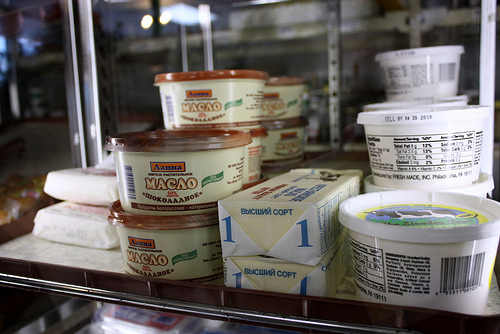
Low-Fat Products Aren't Always Low Calorie - Or Good For You!
Low-fat products were made for people like you, if you're trying to lose weight. But they were made to sell to you, not to help you. Many of them have far lower fat content than their full-fat counterparts, but some of them are actually more calorific. Huh? Well, many of the chemicals that transmit flavor are fat-soluble, so when you remove the fat from a product you need something water-soluble and palatable to replace it. And of course, fat thickens products like mousse and yoghurt. If only there was something that was palatable, water-soluble, acted as a thickening agent and was cheap and easy to add to food products! There is. It's called High Fructose Corn Syrup, and it's implicated in spiraling obesity, metabolic syndrome and diabetes. Eating more HFCS and less fat will trigger blood sugar spikes that will actually make you gain weight quicker than if you ate fat. There's an honorable mention due to the many low-fat products that are actually lower in calories, but even these are actually not as good for you as you might wish. One issue is that they preserve the habits of eating certain foods. Low-fat cheesecake might be lower in fat...
Low-fat products were made for people like you, if you're trying to lose weight. But they were made to sell to you, not to help you. Many of them have far lower fat content than their full-fat counterparts, but some of them are actually more calorific. Huh? Well, many of the chemicals that transmit flavor are fat-soluble, so when you remove the fat from a product you need something water-soluble and palatable to replace it. And of course, fat thickens products like mousse and yoghurt. If only there was something that was palatable, water-soluble, acted as a thickening agent and was cheap and easy to add to food products! There is. It's called High Fructose Corn Syrup, and it's implicated in spiraling obesity, metabolic syndrome and diabetes. Eating more HFCS and less fat will trigger blood sugar spikes that will actually make you gain weight quicker than if you ate fat. There's an honorable mention due to the many low-fat products that are actually lower in calories, but even these are actually not as good for you as you might wish. One issue is that they preserve the habits of eating certain foods. Low-fat cheesecake might be lower in fat than regular cheesecake, but if you have a weight problem it might be better to just forgo cheesecake altogether til things are more on track.
- Important notification about information and brand names used in this slideshow!
- Photo courtesy of Leslie Seaton by Flickr : www.flickr.com/photos/lacatholique/5194486614/
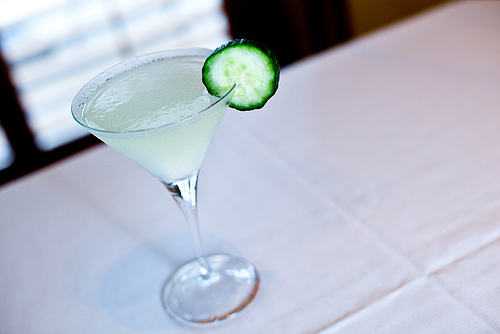
Drinks Sneak Empty Calories Into Your Diet Without You Realizing
Drinks are the number one way that empty calories sneak in to your diet without you realizing. Coffee house specials like frappacinos can be highly calorific - you can be drinking as much as 400 calories without even knowing it, and they're all sugar and bad fats too. Meanwhile sodas are intensely calorific too, and they're deceptive too: because they don't make you feel full and you think of them as a drink rather than food, you can consume a lot of them. A single normal-size can of Coca-Cola, whose caloric content is about normal for the industry, contains 139 calories: a liter bottle is over 400 calories, equivalent to a small meal. And alcohol is calorific itself, in addition to any sugars that may be present in the drink. That's why they call it a 'beer belly,' though other alcoholic drinks are calorific too. If you're trying to lose weight, it's a good idea to clean up your diet in general and drink only in moderation: heavy drinking leads to fast food, apart from anything else!
- Important notification about information and brand names used in this slideshow!
- Photo courtesy of The Vault DFW by Flickr : www.flickr.com/photos/thevaultdfw/3950799676/
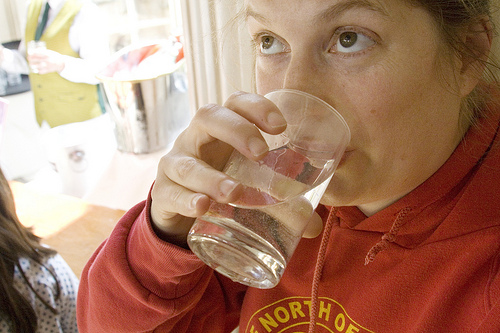
Drinking Too Little Water Can Stall Your Diet Efforts
Drinking water is an easy chore to forget, especially if you've recently replaced sugary drinks with water. Then it can be dull and unappealing. However, fluid intake is one of the most vital baselines for health. A healthy person can live three weeks without food, but only three days without water. And when you're losing weight is an ideal time to up your water intake, helping improve your digestive transit and making you feel a little fuller as well as improving the elimination of toxins. Some people find it's easier to carry a water bottle around with them and take frequent sips; others might be better off taking five minutes a couple of times a day to down a bottle of water. And if you're at home, try adding a couple of slices of lemon to a glass of water for a faint but refreshing tang.
- Important notification about information and brand names used in this slideshow!
- Photo courtesy of juliette by Flickr : www.flickr.com/photos/meliah/3888141312/
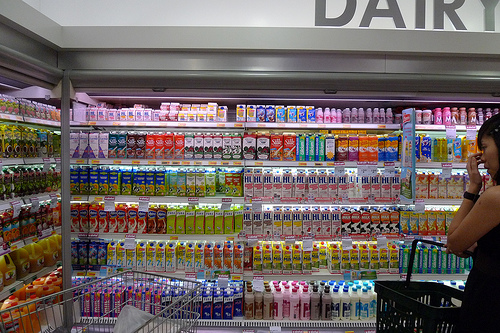
Ditching Dairy Foods - Don't Turn Your Back On Milk And Cheese
Dairy can get a bad rap these days. It's fatty, calorific, filling, and a lot of people think it's 'fattening.' But in reality, milk isn't all that fatty, though it is quite sugary. Yoghurt is less sugary, and cheese is relatively low in sugar though it is extremely high in fat and should be eaten in small portions rather than as a dietary staple. Ditching dairy foods can leave you with a restricted range of foods to choose from, especially on the go: a pint of milk, with its 370 calories, 22 grams of mixed fats including some highly beneficial ones and its range of vitamins and minerals - oh, and its 19 grams of protein -is an ideal meal replacement.
- Important notification about information and brand names used in this slideshow!
- Photo courtesy of Sherwin H by Flickr : www.flickr.com/photos/sherwinh/3142894771/
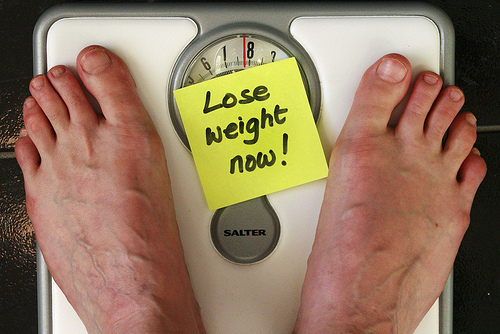
Weighing Yourself Every Day Just Demoralizes You
Weighing yourself every day is the most counterproductive thing you can do if you're trying to lose weight. Daily fluctuations in weight because of the hormonal cycle, meals and the water content of the body can produce a scatter of readings that obscure real results, making you feel that you're losing the battle. This is especially vital if you're lacking in confidence: the last thing you need is the news that you're actually getting heavier, after all! Weight yourself no more than once a week, try to do it at the same time on the same day and look at the monthly changes, not the weekly ones. If you have any real weight to lose it will take more than a couple of weeks, let alone a couple of days!
- Important notification about information and brand names used in this slideshow!
- Photo courtesy of Alan Cleaver by Flickr : www.flickr.com/photos/alancleaver/4222532649/


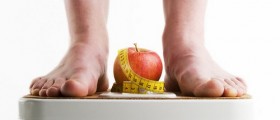
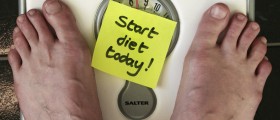
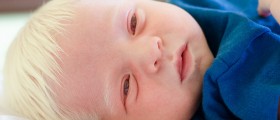
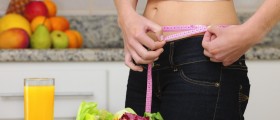
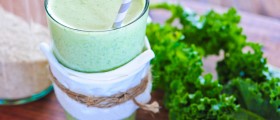
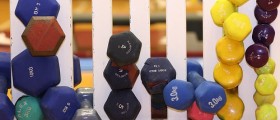

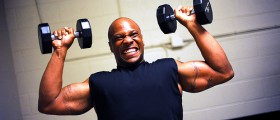
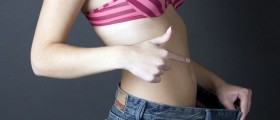

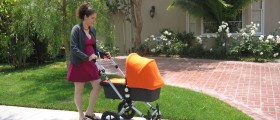
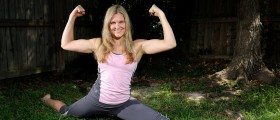

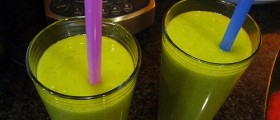

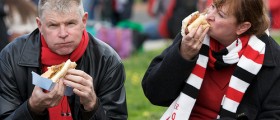
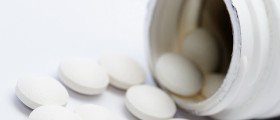
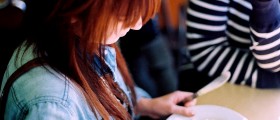
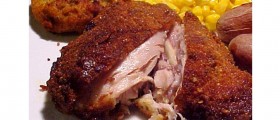
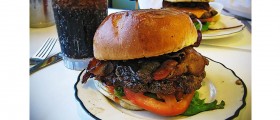
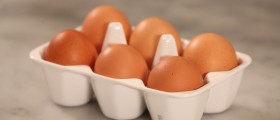
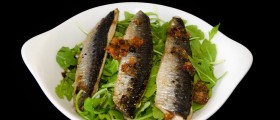
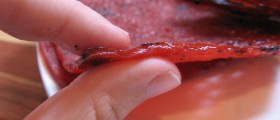
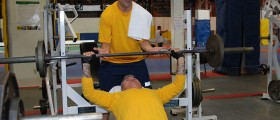
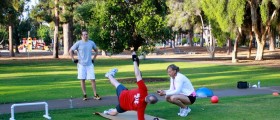
Your thoughts on this
Loading...